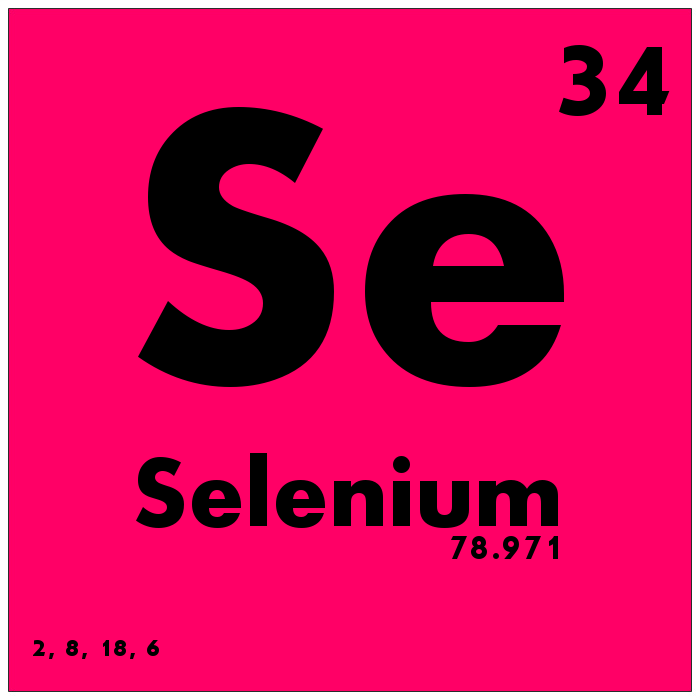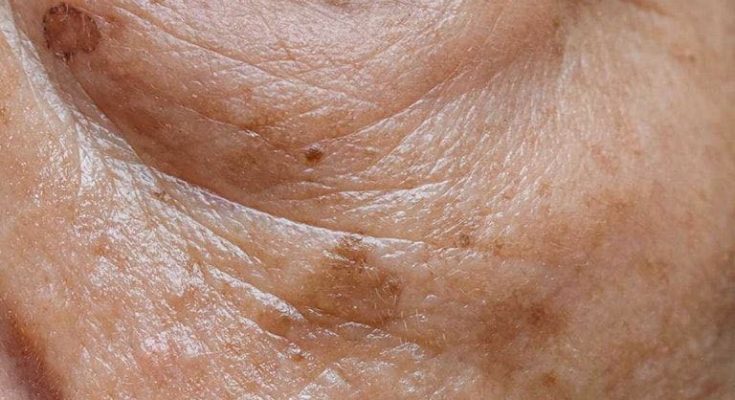Water, soil, and food all naturally contain the vital element selenium.
The Greek goddess of the moon, Selene, is the source of this nutrient’s name. It has numerous positive effects on people, and fortunately, our bodies only require a small quantity to be healthy, which is why it is referred to as a “trace” mineral.
The benefits of including selenium in your diet are numerous and well-established, ranging from increasing immunity and fertility to enhancing cognitive abilities, cardiovascular health, and metabolism.

Selenium skin care benefits
Selenium is essential for the health of our entire body, but it also benefits skin health in a number of ways.
Antioxidant and anti-inflammatory
Selenium is a potent antioxidant that can combat the body’s free radicals. Free radicals are known to break down the fibrous proteins of collagen and elastin in the skin, causing oxidative stress damage to DNA and cells.
This results in dryness, sagging, and dullness. Through its ability to combat free radicals, selenium helps keep your skin hydrated, supple, and elastic while also preventing inflammation and disease.
Anti-aging
Your skin won’t acquire fine lines, wrinkles, dark spots, sagging, hyperpigmentation, and other indications of aging because selenium can reduce the damage that free radicals, UV rays, and environmental aggressors do to the skin.
Additionally, selenium helps certain enzymes function correctly, such as those that control cell development and health. Selenium helps your skin stay young and glowing by promoting cell regeneration.
Supports hair, skin and nails
Hair growth and loss are caused by the thyroid gland. Because selenium aids in the regulation of thyroid hormones, it also aids in the stimulation of hair follicles, promoting the creation of new, healthy hair.
Additionally, selenium stimulates bodily enzymes that support the production of antioxidants like vitamin C.
These antioxidants eliminate dangerous free radicals and promote hair development even more.
Finally, because it may successfully treat dandruff, selenium sulfide is frequently an ingredient in anti-dandruff shampoos.
Boosts immunity
Increasing white blood cell activity is one of selenium’s most well-known benefits. White blood cells are in charge of defending your body against infections, germs, viruses, and other pathogens.
Selenium helps your immune defense system by promoting white blood cells, such as T cells, and controlling overreactions and persistent inflammation.
Promotes healing
Selenium is a potent wound-healing agent when combined with vitamin E. It aids healing by increasing glutathione, a chemical involved in tissue growth and repair as well as immunity.
This is very beneficial for acne scar treatment.
How to regulate your selenium intake
Eating foods high in selenium is the best method to make sure you are getting enough of this mineral in your diet. However, it’s crucial to avoid taking too much selenium because doing so can result in a different set of symptoms or health issues.
While pregnant or nursing women normally need 60–70 micrograms of selenium per day, individuals are currently advised to consume 55 micrograms per day.
Add a supplement, like ChitoCare Beauty Hair, Skin & Nails, to your regular diet to be sure you are getting enough selenium and to benefit from its many advantages.
This patented formula, which contains a unique blend of natural ingredients like chitosan, vitamin C, collagen type II complex, marine fibers, geothermal silica, selenium, and zinc, will nourish your hair and nails, strengthen your immune system with antioxidant action, and better protect your skin from aging and sun damage.
Foods rich in selenium
Location and soil conditions do affect the amount of selenium in food. Since processing can eliminate a mineral’s nutritional properties, whole foods are recommended over processed ones.
Nuts like Brazil nuts and walnuts, fresh and saltwater fish like tuna, cod, and herring, eggs, beans, meat, and chicken, as well as whole grains like brown rice and oatmeal, are some natural food sources of selenium.
In addition to boosting immunity and shielding the body from oxidative stress, selenium performs a number of other vital bodily processes. Among them are:
- contributing significantly to food metabolism and increasing glycose
- controlling thyroid processes that aid in hormone regulation
- promoting the proper operation of multiple organs, enhancing liver and vision
- Because of the mineral’s strong antioxidant activity, it supports cardiovascular health in particular and may lower the risk of coronary heart disease.
- increases fertility and is particularly beneficial for the growth and movement of sperm, while women’s consumption of selenium can lower the incidence of birth abnormalities.
- Selenoproteins that combat oxidative stress support memory and cognitive health, particularly as people age.
- lowering hot flashes in menopausal women because selenium balances estrogen production by influencing fatty acid concentration



